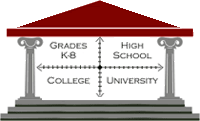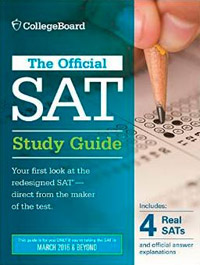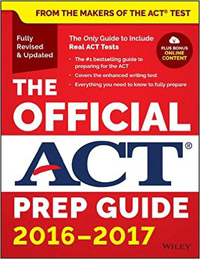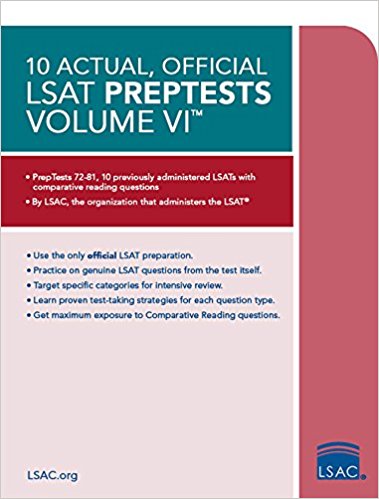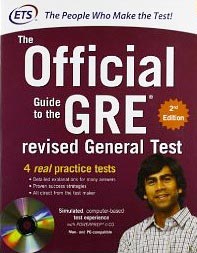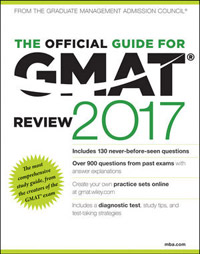|
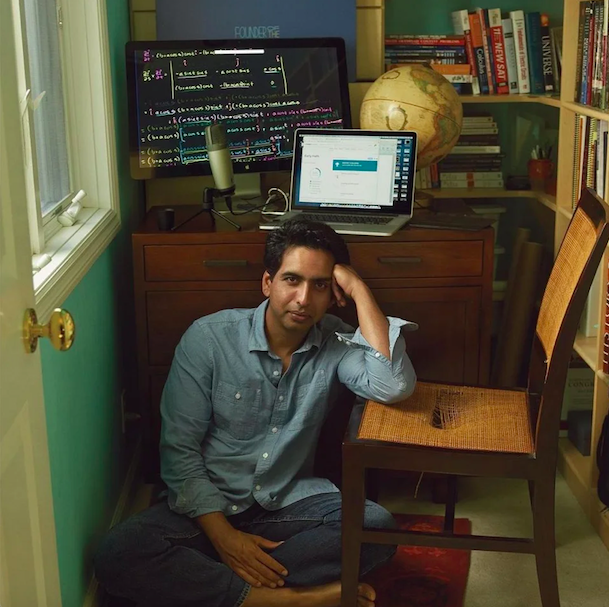 Salman Khan, math video expert, in the glory days before corporate sponsorship. (photo credit: Annie Liebovitz / Vanity Fair, 2014) Salman Khan, math video expert, in the glory days before corporate sponsorship. (photo credit: Annie Liebovitz / Vanity Fair, 2014)
August 2023
Way back on June 30, 2008, the 28-year old version of me wrote one of my first blog posts on the new McElroy Tutoring website, entitled Great Website for SAT Math Videos. My topic that day? A glowing review of Khan Academy.
16 years later, I’m here to partially retract that statement — at least with regards to SAT preparation and Khan's free Official SAT Practice app. Khan's once-promising 2015 partnership with the College Board has proven to be a disappointment, mostly due to its complete lack of real SAT practice questions. Although it is indeed true that the vast majority of Khan Academy SAT practice questions are very similar to those on the real College Board SAT, there is no need to have settled for similarity when thousands of 100% real SAT questions are available.
First, some historical context: it’s important to understand that in 2008, Khan "Academy" was just a simple YouTube page full of free math, science, and economics videos—all created by MIT and Harvard grad Sal Khan himself. Khan had recently been in the news because Bill Gates had mentioned that he used Khan’s videos to teach his own kids math, and that Khan was the “best teacher (Gates had) ever seen.”
At the time, Khan was still relatively unknown (it wasn't until 2010 when the Gates foundation started donating millions of dollars a year), but simply put—it was awesome. Sal Khan was clearly brilliant, with a deep voice, an engaging personality, and a sense of humor. Most importantly, he was a natural teacher with a strong background in Economics, Science, and Math. His iconic, colorful videos with the black background have since been used by millions to help self-teach math, engineering, physics, and other STEM-related topics. For nearly a decade, Khan Academy would continue to grow in popularity, with Mr. Khan adding videos at a prodigious rate—and most importantly, sticking to his strengths of math, science, and finance (Khan has an MBA from Harvard and is a former hedge-fund manager).
However, this all changed for the worse when the College Board officially partnered with Khan in the summer of 2015 (and with the College Board's AP Exams in 2017). The College Board tends to ruin almost everything it touches—and unfortunately, KA is no exception. The Khan nonprofit organization, despite raising about $30 million per year from billionaires such as Gates and Musk, has gone downhill quickly, from a beloved darling of education to a shoddy, clunky, and buggy computer-learning program that widely frustrates students and parents worldwide. It is now better known for its confusing lessons and overly strict homework requirements (assignments often require students to repeat the entire lesson when even one question is answered wrong, for example) than for being the next big thing in education.
https://alexlochoff.medium.com/khan-academy-a-world-class-education-for-no-one-46e575fdf053
https://www.commonsensemedia.org/website-reviews/khan-academy/user-reviews/child
https://support.khanacademy.org/hc/en-us/community/posts/201455564-Anyone-else-about-ready-to-give-up-on-Khan-Academy-
So, what happened?
First of all, Khan has not been without its critics from the start. For example, Khan’s teaching style does not work for all students. Many detractors will also note that Mr. Khan is not a credentialed educator of any type (though I should note that neither am I—nor do believe this to be a prerequisite for becoming a great teacher).
More importantly, however, Khan does not appear to have had any real-life tutoring students, other than 3 his cousins back in 2004: he exclusively makes videos, so he does not anticipate the usual types of questions, struggles, and common misunderstandings that will arise when explaining new concepts to real students, as actual teachers or tutors would, thanks to their countless hours of real teaching experience.
Others have aptly pointed out that even after 15 years of vigorous expansion (and a few contractions due to budget challenges), it's still a stretch to call Khan's extensive library of videos an "academy," when there is zero real-time instruction offered.
As for the company itself, the Khan Academy nonprofit has clearly grown too big for its britches. Like so many companies headed by brilliant founders, it has floundered due to its efforts to expand into a wide variety of subjects, including adult-level tests such as the GMAT, LSAT, and MCAT, exams with highly complex verbal and logic components that have never been Khan’s forte. (I also tutor the LSAT, for example, and most serious LSAT preppers would laugh at you if you told them that you were preparing exclusively with Khan.) While helpful for LSAT beginners, Khan only offers explanations to a small portion of the 92 Official LSAT PrepTests, mostly older exams from the 90s and 2000s.
Khan Academy's instructional videos are now narrated not only by Mr. Khan, but by a variety of instructors across the world, and they vary widely in quality, further exposing the weaknesses of the static video format for education. You might feel smarter after watching a video, but this type of learning is more passive than active, and studies have shown that active learning leads to significantly greater retention. You can’t ask questions of a video, for example—which, to be fair, is more of an inherent limitation of the video format itself than a criticism of Khan Academy in particular.
I am particularly disappointed with the College Board partnership, however, since Khan’s presence in the equation has added almost nothing helpful to the mix. The misleadingly-named Khan Academy “Official SAT Practice” modules are little more than recycled AP-style questions that are clearly not an exact match for real SAT questions in style, content, or delivery. If you read the fine print, then you will see that these free questions are in fact not real SAT questions. They were created "in partnership with," not by the College Board, even though Khan Academy strongly implies otherwise.
Not a single one of Khan's "Official SAT Practice" practice modules features real, College Board SAT questions—and in my opinion, that’s a shame, because there is no good reason for it. For example, there are now nearly 100 SATs in the old (2016-2023) format that the College Board could be featuring on Khan instead of the mediocre, semi-realistic "SAT" practice questions that are currently featured on the Khan website. Comprehensive PDF Collection of Khan Academy materials for the old paper SAT
My conclusion: for most serious digital SAT prep students, the Khan Academy Official SAT Practice app, full of remedial math drills and non-official DSAT reading and writing questions, is a waste of time. They would be better served by practicing with the 6 digital SATs and PSATs that are publicly available on Bluebook in the current format.
It should also be noted that I am still an admirer of Khan personally, as there is no doubt he has aided millions in STEM education over the last 15 years. Khan has since founded other successful and admirable nonprofit ventures, such as Schoolhouse.world, which connects students with free tutors from all over the world via Zoom.
Mr. Khan and I also have a lot in common—we are both Harvard graduates; early adopters of nascent online learning technology such as YouTube, Skype, and Zoom; and former SAT instructors / private tutors for the Princeton Review.
With the founding of Schoolhouse.world, and some of the public comments he has recently made, it is clear that even Khan himself has concluded that real-time tutoring with an actual person is superior to a canned video or impersonal computer program—depending on the quality of the instructor, of course. As a full-time Zoom tutor, I'm certainly biased, but I couldn't agree more.
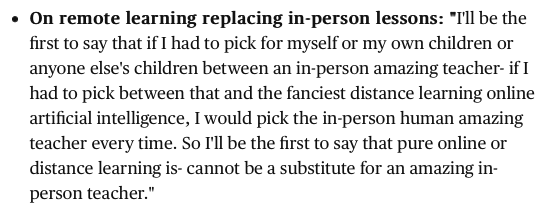
(Source: https://www.cbsnews.com/news/khan-academy-founder-sal-kahn-on-filling-the-gaps-in-covid-impacted-education/)
———
Q: Speaking of real SATs: is it true that they are getting harder?
A: Yes, the SAT is getting harder. Why? Because the SAT is a scaled exam, and the College Board needs to maintain the integrity of the "normal distribution," a.k.a. bell curve. In other words, 99th percentile scores can only be earned by 1% of students, or else they would no longer be 99th percentile scores. As the years have passed, students worldwide have improved on the SAT, as the number of real practice tests has grown, and knowledge about the exam has spread. In response, the College Board has had to steadily create a more difficult version of the SAT over time, as any competent tutor who has closely compared the recent (2020-2023) SAT exams to the ones from 2015-2019 will surely attest.
This phenomenon is sure to continue with the advent of the digital SAT aka DSAT—which has 56 fewer questions than the paper exam (98 vs 154), meaning that each question will be worth more points on average than on the old paper SAT.
My conclusion is also supported by hard facts: the hundreds of data points from my private students' diagnostic exams have confirmed that the recent tests are indeed more difficult. In particular, the Reading sections of recent SATs have been noticeably more challenging than they were in previous years—as evidenced by their more forgiving scoring curves.
Please, I beg you: don’t listen to the ignorant bozos, "power users," and test-prep company employees on Reddit’s r/SAT (and other shady corners of the internet) who mindlessly parrot College Board talking points, claiming that the SAT isn’t getting any harder just because the scoring curves look roughly the same. So do the scoring curves for the SAT and the PSAT 8/9, for example, but the difficulty levels of those two exams are obviously quite different.
These types of misinformed, anonymous online comments tell me that the commenters aren’t actually taking the tests—because to any objective observer who understands the material and is actually paying attention, the current version of the SAT is significantly tougher than it used to be. That's just what happens as a standardized test becomes more established: 1) information about the exam is shared, 2) overall scores go up, and then 3) test difficulty must increase to compensate. This is true not only for the SAT, but also for other popular standardized exams such as the ACT, GRE, GMAT, and LSAT: they are all growing in difficulty over time.
The SAT's recent increase in difficulty has also been amplified by the test optional / test blind movement begun during the onset of the COVID era in 2020, which effectively removed the bottom 50% of test-takers from the population, thus making the remaining test-takers 100% more competitive with each other.
Though in 2023-2024, some top colleges such as MIT have since reinstated their SAT/ACT score requirements, the sheer number of schools who have gone (and stayed) test optional has clearly had an effect on overall SAT score percentages.
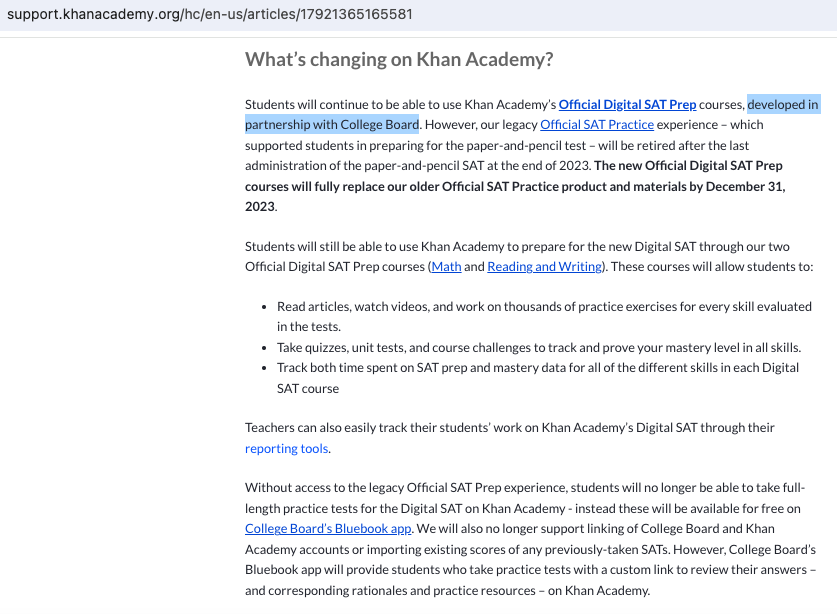
Back to Blog Home
|




